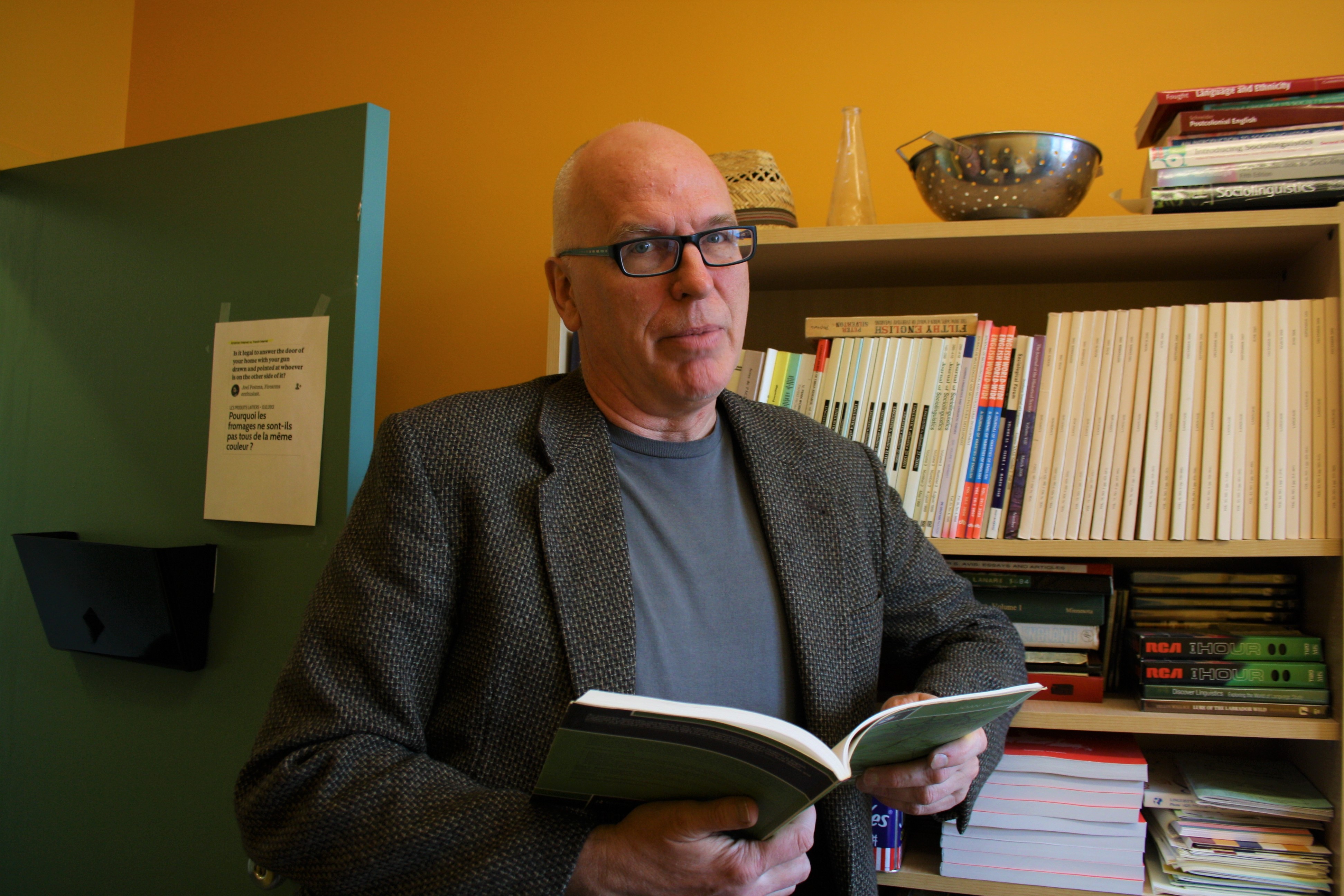Dr. Gerard Van Herk of Memorial University’s linguistics department says the Newfoundland dialect changes the way people think about languages.

Jessie Dobbin
Kicker
Newfoundlanders are known for their distinctive language of Newfienese. However, Newfoundland’s traditional way of speaking is changing.
Dr. Gerard Van Herk is a member of Memorial University of Newfoundland’s linguistics department.
During research on traditional Newfoundland speech, Van Herk says he noticed changes in things such as the placement and pronunciation of letters.
He says that while Newfoundlanders previously added the letter “s” to the end of action verbs like “think” and “know”, now they are adding them to the end of words like “want” and “need”.
Heather Walker, who moved to Newfoundland seven years ago, said she couldn’t understand anyone at first. She says when she first came to Newfoundland, people told her she spoke funny.
Walker also says once she returned to Alberta to visit her family she realized, once again, how differently Newfoundlanders talk.
“My sister wanted me to say the word house because Newfoundlanders say house differently,” Walker said while putting more emphasis on the letter “u” in the word “house.”
Walker says after living in Newfoundland for so long, she has become accustomed to the way Newfoundlanders speak.
“It’s not that complicated or weird, it’s just a different way of puttin’ it,” she said.
The Newfoundland accent wasn’t always a source of pride to the people of the province. In fact, a person who spoke with a Newfie accent was thought to be uneducated and unprofessional.
Van Herk says that up until 1971, the school board would bring teachers from Britain to come to Newfoundland to instruct teachers to speak without their accents.
The island was always thought to be a mixture of both Irish and British languages due to the high numbers of immigrants from both countries.
In reality, Newfoundland had two main dialects, one being Irish and the other British, and with more sub-dialects caused by a community’s isolation. Some features used in traditional Newfoundlander’s speech come from southern America and the Caribbean.
“It used to be so hard to get from one place to another that things got developed in isolation and kept the old ways of talking,” said Van Herk.
“People all around the world who do my job are curious about what’s going on in Newfoundland.”
During surveys, Van Herk has noticed that the further you travel away from the cities on the island, the more you hear traditional ways of speaking. During a study on the communities of Corner Brook and Petty Harbour, the results showed Corner Brook had a more traditional way of speaking despite Petty Harbour’s small population.
“You’d think since Petty Harbour is a small place it would sound more traditional,” said Van Herk. “But, in fact, they’re so close to St. John’s they’re adopting less traditional ways of talking. Whereas in Corner Brook things like ‘goes’ are still being used a whole lot.”
Van Herk says linguists in Newfoundland aren’t studying the different dialects in Newfoundland anymore, but the change in them. He says there has been a lot of social change in Newfoundland like the Second World War, joining Canada and the collapse of the cod fishery. It is these changes that began to change the way Newfoundlanders speak.
“People all around the world who do my job are curious about what’s going on in Newfoundland,” said Van Herk. “When I tell them, it helps them change the way they think about languages. This place is important.”




Be the first to comment